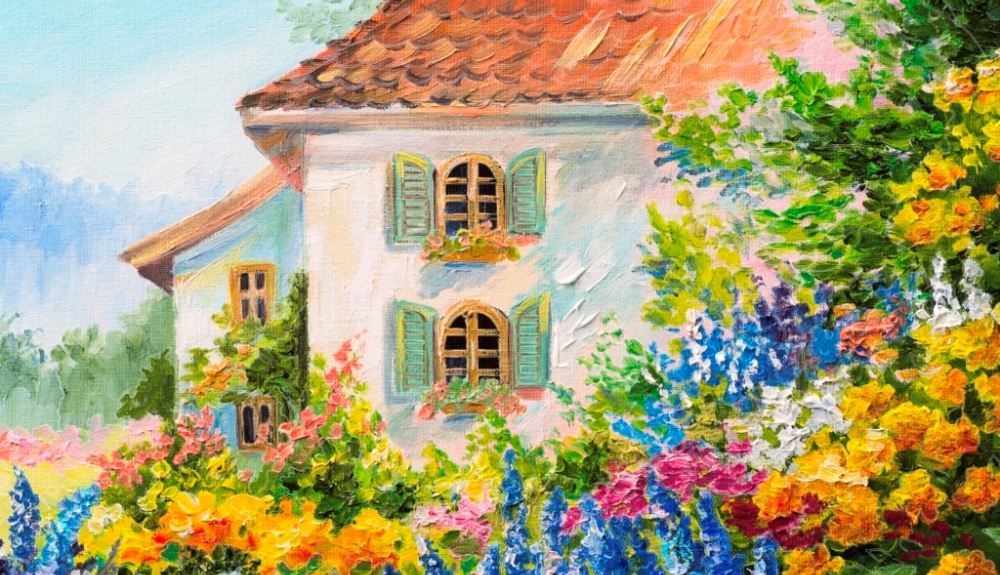
I was 19 years old when I was told that my mother had ovarian cancer and was not going to live much longer. I’d just finished my first year of university, but I was the oldest of five children, and my mother was dying. So at the beginning of what would have been my second year, I packed up my university things and found myself instead making meatloaf and administering doses of morphine in a house in the suburbs.
It is amazing how much you can learn in one year. I went home in September and my mother died in January. By April, I realized I had salvaged one thing out of the ruin of my life as I had known it: I was still alive, and I could actually take pleasure in the feeling of my lungs filling and emptying again. I looked at the daffodils and the azaleas, and Lord, they were beautiful.
I went back to university and I looked around at all the kids who found life kind of a drag. And I knew I had undergone a sea change. Because I was never again going to be able to see life as anything except a gift.
Oh, I’ve lost this feeling from time-to-time. Bad days and good days. Life cycles and dark moods. We’ve lived through a period in which pessimism was the fashion. And some days we wake up and find on the front page of the papers that we have totally underestimated the human ability to be sadistic and destructive.
And yet . . . and yet. It’s all so terrific—the conversation and the relationships and the scenery in the midst of all our troubles. That’s why we feel so deeply when it’s endangered—because if we think about life, we know how quietly wonderful it can be. We know that if we had only six months of it left, we’d hold on as tight as we could with both hands to every day, every hour.
It’s ironic that we forget this. We have more time than ever before to remember it, those of us who are surrounded by high-tech appliances, cars, family rooms—the kinds of things our grandparents thought only rich people had. Yet instead of rejoicing, we find the glass half empty. Our jobs take too much out of us. Our kids are an awful responsibility.
Let’s be honest. We have an embarrassment of riches. Life is good. And that’s why we have an obligation to make it better. If each of us doesn’t give something back, it makes a mockery of all we’ve been given.
It is easy to say to yourself, I cannot give a minute more. There aren’t enough hours in the day. Whenever I feel that way, I remember a day I spent with a woman who worked twice a week at a neighborhood soup kitchen. She had a busy husband and two kids to take care of along with a job, and I was standing at a sink watching her scrape carrots. And I said to her, “How can you find the time to do this?” She looked up at the line of men and women forming outside. And with scarcely a pause in her peeling, she answered, “How could I not?”
The question is not whether we will do this. Because we must. But first we have to recognize how much we have. Life is divine. I don’t mean in any cosmic way, but in all its small component parts: the feeling of one of my kid’s hands inside mine, the way my husband looks when he reads with the lamp behind him, Fettuccine Alfredo, fudge, Pride and Prejudice. Life is made of moments, small pieces of silver amid long stretches of gravel. It would be nice if they came unsummoned, but given our busy lives, that won’t happen. We have to make the time for them.
So I offer this challenge: Learn to be happy. Learn to look at all the good in the world and to give some of it back because you believe in it passionately.
Embrace the little things of life that sometimes get left in the dust of our frenetic schedules. Without the inner satisfaction that comes with them, our accomplishments will be nothing more than the stuff of resumes. And a resume is cold comfort on a winter night.
Gwendolyn Brooks wrote:
And be it gush or gold it will not come
again in this identical disguise.”
Sometimes we lose that wonder. And sometimes we regain it through hard lessons, the way I did. Because the year my mother died, I learned something enduring about life: that it is glorious, and we have no business taking it for granted.